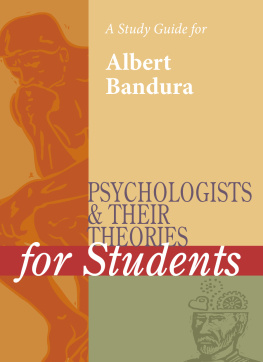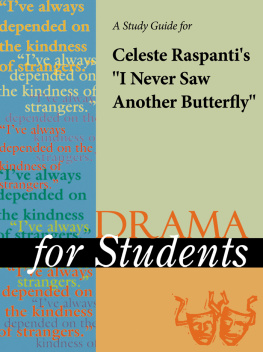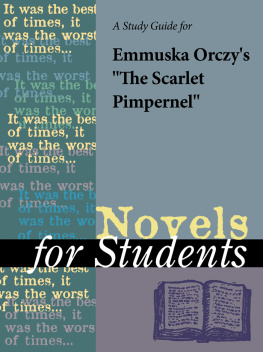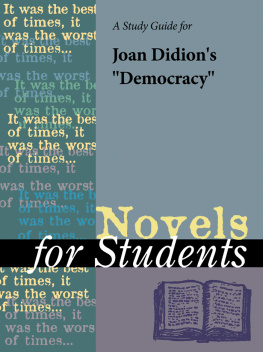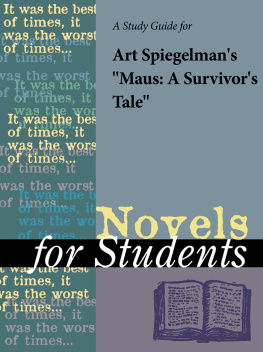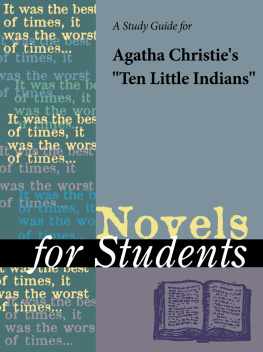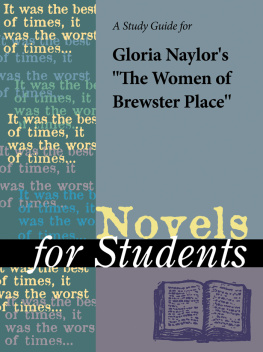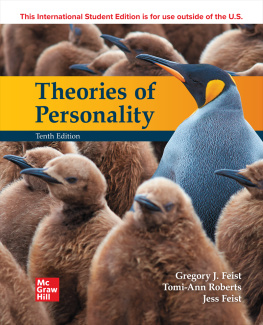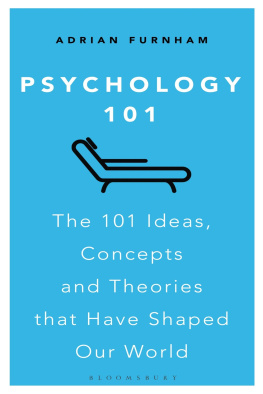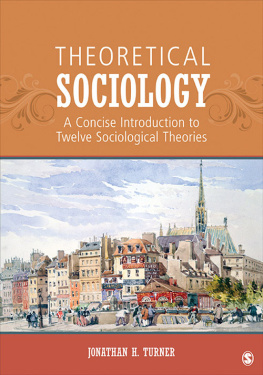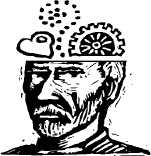TABLE OF CONTENTS
Guide
Psychologists and Their Theories for Students
Product Manager
Meggin Condino
Project Editor
Kristine Krapp
Editorial
Mark Springer
Indexing Services
Katherine Jensen
Rights and Aquisitions
Margaret Abendroth, Ann Taylor
Imaging and Multimedia
Robyn Young, Lezlie Light, Dan Newell
Product Design
Pamela A. Galbreath
Manufacturing
Evi Seoud, Lori Kessler
2005, 2015 Gale, a part of Cengage Learning Inc.
cengage and Burst Logo are trademarks and Gale is a registered trademark used herein under license.
For more information, contact
Gale, an imprint of Cengage Learning
27500 Drake Rd.
Farmington Hills, MI 48331-3535
Or you can visit our Internet site at http://www.gale.com
ALL RIGHTS RESERVED
No part of this work covered by the copyright hereon may be reproduced or used in any form or by any meansgraphic, electronic, or mechanical, including photocopying, recording, taping, Web distribution, or information storage retrieval systemswithout the written permission of the publisher.
This publication is a creative work fully protected by all applicable copyright laws, as well as by misappropriation, trade secret, unfair competition, and other applicable laws. The authors and editors of this work have added value to the underlying factual material herein through one or more of the following: unique and original selection, coordination, expression, arrangement, and classification of the information.
For permission to use material from this product, submit your request via Web at http://www.gale-edit.com/permissions, or you may download our Permissions Request form and submit your request by fax or mail to:
Permissions Department
Gale, an imprint of Cengage Learning
27500 Drake Rd.
Farmington Hills, MI 48331-3535
Permissions Hotline:
248-699-8006 or 800-877-4253, ext. 8006
Fax: 248-699-8074 or 800-762-4058
Since this page cannot legibly accommodate all copyright notices, the acknowledgements constitute an extension of the copyright notice.
While every effort has been made to ensure the reliability of the information presented in this publication, Gale, an imprint of Cengage Learning does not guarantee the accuracy of the data contained herein. Gale, an imprint of Cengage Learning accepts no payment for listing; and inclusion in the publication of any organization, agency, institution, publication, service, or individual does imply endorsement of the editors or publisher. Errors brought to the attention of the publishers and verified to the satisfaction of the publisher will be corrected in future editions.
LIBRARY OF CONGRESS CATALOGING-IN-PUBLICATION DATA
Psychologists and their theories for students / Kristine Krapp, editor.
p. cm.
Includes bibliographical references and index.
ISBN 0-7876-6543-6 (set : hardcover : alk. paper)
ISBN 0-7876-6544-4 (v. 1)
ISBN 0-7876-6545-2 (v. 2)
1. Psychologists. 2. Psychology. I. Krapp, Kristine M.
BF109.A1P72 2004
Printed in the United States of America
10 9 8 7 6 5 4 3 2 1
Albert Bandura
1925-
CANADIAN-BORN AMERICAN PSYCHOLOGIST, RESEARCHER
UNIVERSITY OF IOWA, PhD, 1952
BRIEF OVERVIEW
When people first try a new sport, they often know what they need to do before ever stepping onto a playing field or court because theyve watched other people play. Albert Bandura recognized the importance of this process, called observational learning or vicarious learning, in which people learn to do something without actually performing the behavior themselves or being directly rewarded or punished for it. The advantage of this kind of learning is that it lets people learn from the experience of others, without having to reinvent the wheel every time they do something new.
In a series of classic studies, Bandura and his colleagues looked at the way observational learning affects aggressive behavior in children. Some children were shown a film in which an adult punched, hammered, and kicked a plastic inflatable doll, called a Bobo doll. Those who viewed the film were later more likely to act aggressively themselves when given a chance to play with the doll. Furthermore, seeing the adult in the film be rewarded for aggression increased the likelihood of aggression in the children even more, while seeing the adult punished had the opposite effect. However, just watching the aggressive behavior was enough for the children to learn it, regardless of whether rewards or punishments were given. The Bobo doll experiments became some of the best-known studies in psychology.
Yet, as important as observational learning is, Bandura also stressed that people have self-control over which behaviors they copy and which they do not. This self-control is exercised through cognitive, or thought, processes. Banduras other major contribution to psychology has been the description of one key cognitive process, called perceived self-efficacy. Peoples perceived self-efficacy refers to their beliefs about how capably they will be able to perform a behavior in a particular situation.
These two central themes in Banduras workobservational learning and self-efficacy beliefshave been brought together with other factors under the label social-cognitive theory. According to Banduras social-cognitive theory, the outer world and the inner personincluding that persons beliefs, thoughts, and feelingscombine to determine an individuals actions. The results of those actions, in turn, help shape the persons future beliefs, thoughts, and feelings. In this way, a cycle is established, in which the outer world, the inner person, and the persons behavior all act on and feed off each other. However, this does not necessarily have to be a vicious cycle. In fact, by changing his or her self-efficacy beliefs, a person can potentially break free of an old, negative cycle and establish a new, positive one. This theory is the culmination of Banduras lifetime of study and research.
In 2002, a psychologist named Steven Haggbloom and his colleagues published a paper in which they attempted to rank the 100 most eminent psychologists of the twentieth century. They based their ranking on six different variables: citations in journals, mentions in introductory psychology textbooks, a survey of American Psychological Society members, election as president of the American Psychological Association (APA) or receipt of the APA Distinguished Scientific Contributions Award, membership in the National Academy of Sciences, and use of the psychologists surname to identify a particular theory or school of psychology. Bandura ranked number four, right behind B.F. Skinner, Jean Piaget, and Sigmund Freud.
BIOGRAPHY
Growing up in a remote village in Canada, Bandura attended a small school where teachers and textbooks were in short supply. Perhaps because of these limitations, Bandura became a self-motivated and independent learner. His curiosity and independence would serve him well throughout a long and productive career.

